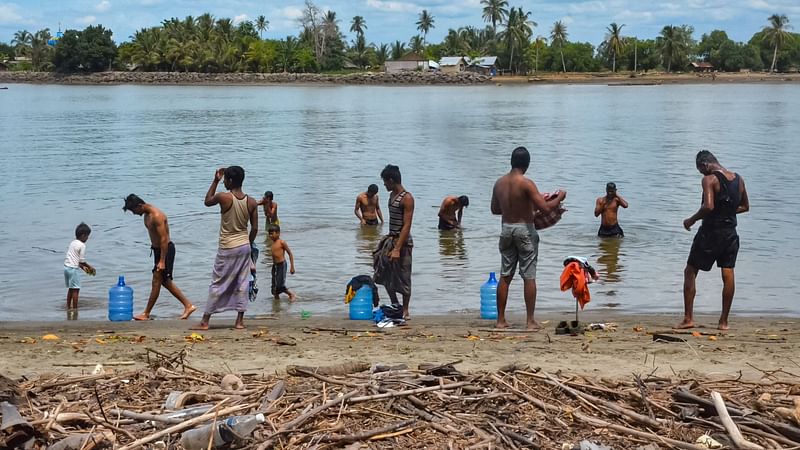
Rights bodies appeal to Indonesia not to push back Rohingya
Human rights groups have appealed to Indonesia not to push back the 81 Rohingya refugees who landed on the country’s Aceh coast in a ramshackle boat.
“The 81 refugees have landed on Idaman Island in Aceh. We are told they are okay,” said Chris Lewa, director of the Arakan Project that has researched the Rohingya issue for decades.
But speaking to IANS, Lewa said: “I am keeping my fingers crossed and just hope Indonesia will not push them back or hand them over to Myanmar, like Malaysia has often done.”
“Until we know for sure that they are not being pushed back, the Rohingya are not 100 per cent safe there.”
The Human Rights Watch (HRW) also appealed to ensure that the refugees are not pushed back.
“ASEAN leaders, having done almost nothing for years, should dramatically rethink their approach to the Rohingya crisis,” said Brad Adams, HRW’s Asia director.
“A coordinated regional response is desperately needed to protect Rohingya in Myanmar, in refugee camps abroad, and at sea, while pressing Myanmar to take the steps necessary for them to return home safely.”
A coordinated regional response is desperately needed to protect Rohingya in Myanmar, in refugee camps abroad, and at sea, while pressing Myanmar to take the steps necessary for them to return home safelyBrad Adams, HRW’s Asia director
Numerous boats, each with hundreds of Rohingya asylum seekers, have been leaving overcrowded refugee camps in Cox’s Bazar in Bangladesh for Southeast Asian destinations every year.
Malaysian and Thai authorities have been pushing the boats back to sea, leaving hundreds of refugees in precarious condition, without access to adequate food and water for months.
The boat that landed in Aceh had sailed on 11 February from Cox’s Bazar carrying 90 Rohingya refugees, most of them women and children, with the hope of reaching Malaysia.
But the boat’s engine failed four days after leaving Cox’s Bazar and it ran adrift until Indian Coast Guards rescued it.
Of the 90 people who set out on the voyage, eight were found dead by the Indian Coast Guards who later helped repair the vessel.
Indian authorities provided food and essential supplies to survivors but refused to let them set foot on their shores.
Bangladesh, too, denied re-entry to 81 survivors.
Over the last three months, international aid agencies and family members of those on-board have made repeated appeals to India, Bangladesh, Myanmar and Malaysia for information about the fate of the survivors on the boat.
Dwi Prafitria, spokeswoman for the UN High Commissioner for Refugees in Indonesia, has said that the refugees currently don’t have a place to stay.
“We have to coordinate with the local government.”
Authorities in Indonesia, including local police and immigration, were not immediately available for comment.
More than one million Rohingya refugees from Myanmar are living in teeming camps in Bangladesh, including tens of thousands who fled after a deadly crackdown in 2017.
Human traffickers often lure Rohingya refugees, persuading them to travel on rickety vessels with the promise of work in Southeast Asian countries like Malaysia.